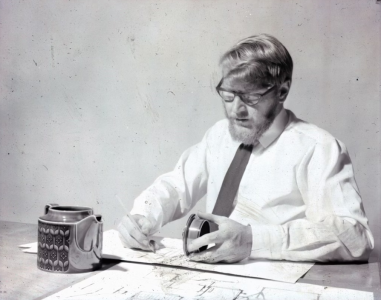A look back at 1970s predictions the world is still waiting on
- Replies 0
The future has always been a canvas onto which people project their hopes, fears, and visions of progress, yet what becomes reality rarely matches the bold sketches of the past.
Entire generations have been guided by images of cities in the sky, effortless living, and lives transformed by innovation, only to discover that time itself has a way of rewriting priorities.
What seemed inevitable to dreamers of one era becomes optional to the pragmatists of another, creating gaps between the imagined tomorrow and the lived present.
These gaps are less about technological impossibility and more about collective decisions on what society truly chooses to pursue.
The prediction was rooted in historical trends where industrialization steadily reduced work hours as machines took over more labor.
Instead, technology tied workers more tightly to their jobs, with smartphones and digital communication erasing boundaries between office hours and home life.
Modern trials in countries like Iceland and Belgium suggest the idea was valid, but its implementation was culturally delayed.
The technology to make such vehicles exist has long been in development, yet mass adoption remains blocked by safety concerns, regulation, and sheer logistical complexity.
Coordinating thousands of airborne commuters with reliable infrastructure has proven far more difficult than dreamers anticipated. For now, prototypes exist more as novelties than the everyday convenience once imagined.
Ironically, the rise of printers and cheap digital duplication actually increased paper use, as creating and distributing documents became faster than ever before.
Legal frameworks and cultural habits reinforced this reliance, keeping paper firmly entrenched in daily workflows.
The dream of paperless offices shows how technology often amplifies habits rather than replacing them.

While products like Soylent and Huel deliver complete nutrition, they have never replaced traditional meals.
The cultural and social meaning of food—its role in bonding, tradition, and pleasure—outweighs arguments for pure convenience.
This prediction underestimated humanity’s deep attachment to eating as an experience rather than a function.
Cloud seeding offered glimpses of possibility, but atmospheric complexity proved far beyond easy manipulation.
Unintended consequences made large-scale control too risky, while climate change ironically revealed how human influence can alter weather destructively rather than constructively.
Dreams of bending the skies to our will remain distant, overshadowed by the urgent challenge of undoing our accidental alterations.
Although research stations demonstrate feasibility, the costs, engineering challenges, and psychological barriers of underwater living far exceeded expectations.
Protecting structures from immense pressure and ensuring human well-being in such environments proved far more difficult than building on land.
Oceans remain a domain of exploration rather than colonization, with conservation now prioritized over expansion.
Also read: The 131-year-old novel that has readers questioning reality—coincidence or something more?
While specialized devices like robotic vacuums exist, general-purpose helpers remain elusive. The unpredictable nature of home environments, combined with the difficulty of interpreting human instructions, has slowed progress.
Advances in artificial intelligence may bring this vision closer, but the household robot remains a dream more than a reality.
The technology worked, but social discomfort, high costs, and awkward designs kept it from widespread adoption until much later.
Only with smartphones and high-speed internet did video calling become effortless and normalized. The global pandemic confirmed the value of this vision, even if it arrived decades later than expected.
Instead, innovation shifted toward vehicle-based autonomy rather than infrastructure-led systems.
Today’s self-driving cars rely on sensors and software rather than coordinated road networks, bringing safety challenges during the long transition phase.
The dream of entirely automated highways reflects a path society has postponed rather than abandoned.
Also read: 2025 forecasts: "Prophets" predict alien contact and more—should we listen?
In reality, energy limitations and safety risks have confined jetpacks to demonstrations and niche uses.
Operating times remain measured in minutes, and costs are far beyond everyday reach. For now, jetpacks remain symbols of possibility rather than practical tools for travel.
Flying cars, underwater cities, and robotic servants all remain technically possible but socially postponed, overshadowed by investments in technologies like smartphones, social media, and cloud computing.
Many of the predictions retain their relevance, as experiments with shorter workweeks and advances in robotics show glimpses of what could still arrive.
These unfulfilled visions remind us that the future is not inevitable—it is a matter of collective choice about which dreams we truly want to pursue.
Read next: Experts reveal timeline for technology to surpass human intelligence—are you prepared?

Do you think society will ever choose to revive these abandoned dreams, or are they destined to remain nostalgic visions of “the future that never was”? Share your thoughts in the comments and let others know what prediction you’d still like to see come true!
Entire generations have been guided by images of cities in the sky, effortless living, and lives transformed by innovation, only to discover that time itself has a way of rewriting priorities.
What seemed inevitable to dreamers of one era becomes optional to the pragmatists of another, creating gaps between the imagined tomorrow and the lived present.
These gaps are less about technological impossibility and more about collective decisions on what society truly chooses to pursue.
The four-day workweek: liberation through productivity
Experts once insisted that by 1990 Americans would enjoy a permanent three-day weekend, believing that technology would make workers so productive that fewer hours would be required to sustain the economy.The prediction was rooted in historical trends where industrialization steadily reduced work hours as machines took over more labor.
Instead, technology tied workers more tightly to their jobs, with smartphones and digital communication erasing boundaries between office hours and home life.
Modern trials in countries like Iceland and Belgium suggest the idea was valid, but its implementation was culturally delayed.
Flying cars: personal aviation for everyone
Illustrations in magazines promised highways in the sky, where families could escape gridlock by unfolding wings and soaring above the city.The technology to make such vehicles exist has long been in development, yet mass adoption remains blocked by safety concerns, regulation, and sheer logistical complexity.
Coordinating thousands of airborne commuters with reliable infrastructure has proven far more difficult than dreamers anticipated. For now, prototypes exist more as novelties than the everyday convenience once imagined.
The paperless office: digital everything
Optimists foresaw computer terminals eliminating paper clutter, with businesses seamlessly managing records and communications in electronic form.Ironically, the rise of printers and cheap digital duplication actually increased paper use, as creating and distributing documents became faster than ever before.
Legal frameworks and cultural habits reinforced this reliance, keeping paper firmly entrenched in daily workflows.
The dream of paperless offices shows how technology often amplifies habits rather than replacing them.

A look back at 1970s predictions the world is still waiting on. Image source: East Riding Archives / Unsplash
Meal replacement pills: nutrition without cooking
In a world obsessed with efficiency, futurists imagined pills replacing kitchens and grocery trips, offering nourishment in tidy capsules.While products like Soylent and Huel deliver complete nutrition, they have never replaced traditional meals.
The cultural and social meaning of food—its role in bonding, tradition, and pleasure—outweighs arguments for pure convenience.
This prediction underestimated humanity’s deep attachment to eating as an experience rather than a function.
Weather control: mastering nature’s forces
Bold promises suggested scientists would tame storms, ending droughts and diverting hurricanes by the turn of the millennium.Cloud seeding offered glimpses of possibility, but atmospheric complexity proved far beyond easy manipulation.
Unintended consequences made large-scale control too risky, while climate change ironically revealed how human influence can alter weather destructively rather than constructively.
Dreams of bending the skies to our will remain distant, overshadowed by the urgent challenge of undoing our accidental alterations.
Underwater cities: colonizing the ocean floor
Visionaries like Jacques Cousteau saw humanity moving beneath the waves into domed settlements that would harness the sea’s resources.Although research stations demonstrate feasibility, the costs, engineering challenges, and psychological barriers of underwater living far exceeded expectations.
Protecting structures from immense pressure and ensuring human well-being in such environments proved far more difficult than building on land.
Oceans remain a domain of exploration rather than colonization, with conservation now prioritized over expansion.
Also read: The 131-year-old novel that has readers questioning reality—coincidence or something more?
Universal household robots: mechanical servants
Predictions promised tireless androids managing everything from cleaning to childcare, liberating families from domestic chores.While specialized devices like robotic vacuums exist, general-purpose helpers remain elusive. The unpredictable nature of home environments, combined with the difficulty of interpreting human instructions, has slowed progress.
Advances in artificial intelligence may bring this vision closer, but the household robot remains a dream more than a reality.
Video phones in every home: seeing while speaking
Telecommunications pioneers were certain that video calls would replace all voice-only communication.The technology worked, but social discomfort, high costs, and awkward designs kept it from widespread adoption until much later.
Only with smartphones and high-speed internet did video calling become effortless and normalized. The global pandemic confirmed the value of this vision, even if it arrived decades later than expected.
Automated highways: hands-free driving
Planners in the 1970s imagined smart highways where cars would glide safely under computer control, eliminating accidents and congestion.Instead, innovation shifted toward vehicle-based autonomy rather than infrastructure-led systems.
Today’s self-driving cars rely on sensors and software rather than coordinated road networks, bringing safety challenges during the long transition phase.
The dream of entirely automated highways reflects a path society has postponed rather than abandoned.
Also read: 2025 forecasts: "Prophets" predict alien contact and more—should we listen?
Personal jetpacks: individual flight freedom
Images of commuters strapping on jetpacks captured the imagination, promising flight without roads or cars.In reality, energy limitations and safety risks have confined jetpacks to demonstrations and niche uses.
Operating times remain measured in minutes, and costs are far beyond everyday reach. For now, jetpacks remain symbols of possibility rather than practical tools for travel.
Conclusion
The dreams of the 1970s reveal not failures of imagination but shifts in values, economics, and priorities that shaped which futures were realized and which were deferred.Flying cars, underwater cities, and robotic servants all remain technically possible but socially postponed, overshadowed by investments in technologies like smartphones, social media, and cloud computing.
Many of the predictions retain their relevance, as experiments with shorter workweeks and advances in robotics show glimpses of what could still arrive.
These unfulfilled visions remind us that the future is not inevitable—it is a matter of collective choice about which dreams we truly want to pursue.
Read next: Experts reveal timeline for technology to surpass human intelligence—are you prepared?
Key Takeaways
- The 1970s produced bold predictions about flying cars, underwater cities, robotic servants, and even weather control, but most remain unrealized.
- Many of these ideas proved technically feasible, yet social, cultural, and economic priorities pushed innovation in different directions.
- Instead of automated highways and meal pills, society invested in personal devices like smartphones and digital communication.
- Some predictions, such as shorter workweeks and household robots, still show potential to become reality in the coming decades.






